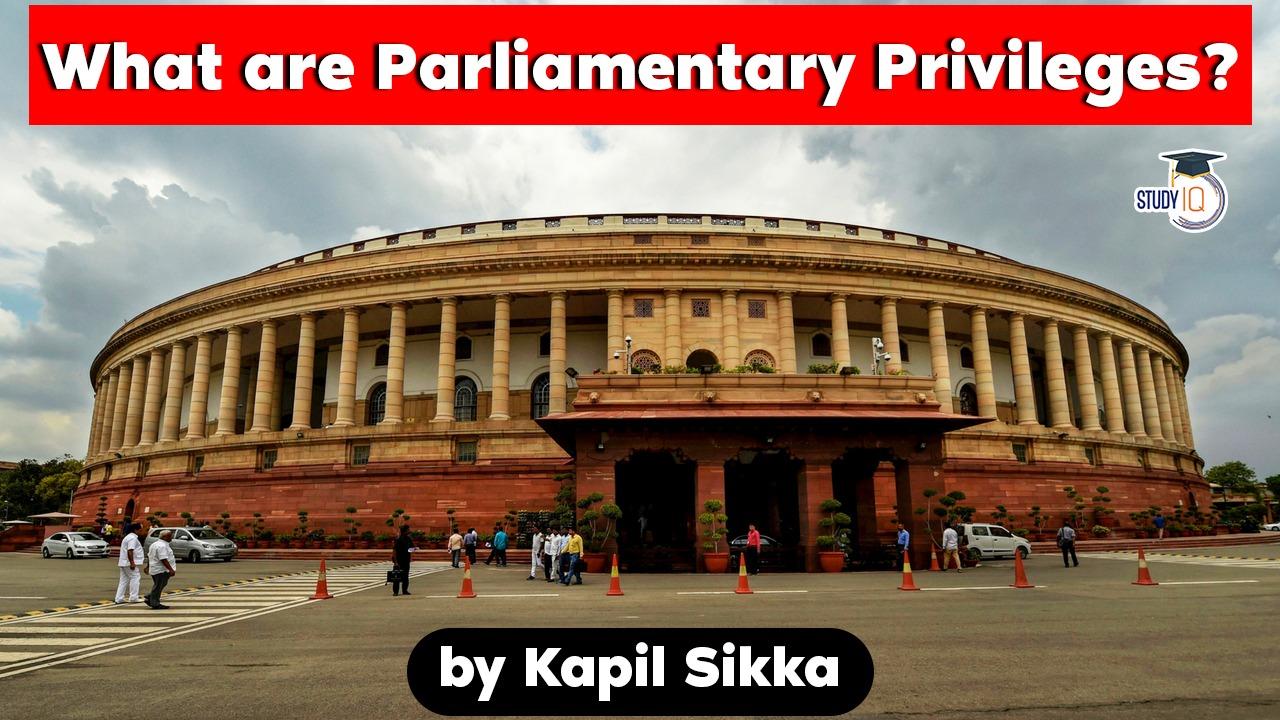Table of Contents
Time to define Parliamentary Privileges
- In the absence of legislation defining parliamentary privileges and immunities, courts will have to embark on defining the privileges these legislators are entitled to.
What are the Parliamentary Privileges?




Historical Interpretation
- Constituent Assembly members objected to citing the example of United Kingdom,
- Alladi Krishnaswamy Ayyar, who was supported by Dr BR Ambedkar, gave two reasons: one, Members of British Parliament had wider privileges than members of Indian legislatures had at that time. Hence it would be apt to rely on British practices.
- Secondly, due to shortage of time, the Constituent Assembly cannot take for itself the onerous task of determining the long list of privileges and immunities.
- Therefore, it had left this task for future legislatures to determine their own privileges and immunities. Ayyar made it very clear that this reliance on House of Commons culture is a temporary measure till the Parliament/State legislature makes a law.



Supreme Court’s Stand
State of Kerala v. K Ajith 2021
- the Supreme Court recently held that the members of legislative assembly (MLAs) against whom prosecution has been initiated for alleged criminal acts in the assembly cannot claim immunity under Article 194 of the Constitution of India.
- The Bench of Justices DY Chandrachud and MR Shah rightly observed,
- “To claim exemptions (by legislators) from the application of criminal law would be to betray the trust which is impressed on the character of the elected representatives as the makers and enactors of the law.”
- To arrive at this ratio, the apex court has relied much on English court precedents. Before elaborating on those, we shall first discuss Articles 105 and 194 of the Constitution.
- As legislators are elected representatives of the citizens, it is their bounden duty to air the grievances of the people who have voted them to power. Parliament/State legislatures are considered as the best platform to voice the issues of the public.
- As legislators represent the voices of their voters, the Constitution framers thought it wise to provide them certain powers and privileges. Therefore, Articles 105 and 194 were inserted into the Constitution to ensure free and healthy debate in Parliament and the State legislatures.
- Articles 105 and 194 are the “privilege provisions” in the Constitution.
- Article 105(1)/194(1) provides for “freedom of speech” in Parliament/ legislature of every State. But this freedom is subject to provisions of the
- Hence, they should be provided protection only for the things said or debated, and not any kind of expressions, like acts of vandalism, assault, etc.
- The first part of Article 105(2)/194(2) immunises legislators from facing the wrath of the courts “in respect of” anything said or any vote given in Parliament/State legislature.
- The second part of Article 105(2)/194(2) gives immunity to a “person” in respect of the publication of any report, paper, votes or proceedings by or under the authority of the house.
- Article 105(3)/194(3), which is topic of this article’s discussion, confers competence to the Parliament/State legislature to enact a law defining their powers, privileges and immunities, over and above the ones encapsulated under Articles 105(1) & (2)/194(1) & (2).
- Till such law is made, the MPs and MLAs are given the same powers, privileges and immunities as the members of House of Commons of United Kingdom had at the time of commencement of the Constitution of India.
What did Constitutional law experts opine?
- HM Seervai, in his magnum opus Constitutional Law of India: A Critical Commentary, opined that the House of Commons culture under Article 105(3)/194(3) was not a transitory provision,
- Secondly, it was not intended to operate for limited period of time as Articles 334, 336 & 337 are there.
- Thirdly, states, dominions and colonies of the British did not give up the practice.
- Whereas DD Basu, in his book Commentary on the Constitution of India, rightly argued on the need for legislation defining parliamentary privileges.
Summing up
- 71 years of the constitution have passed and there is still no such law enacted defining privileges and immunities of Parliament/State legislatures.
- We can rely upon English and Commonwealth authors, the most authoritative being Sir Erskine May’s Parliamentary Practice, as well as on English court judgments.
Latest Burning Issues | Free PDF






















 WhatsApp
WhatsApp